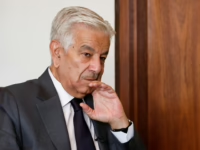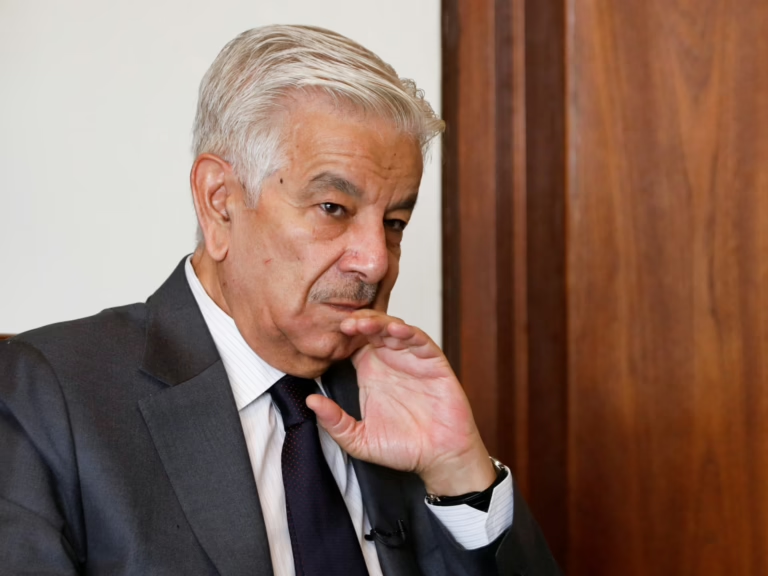Pakistani Defence Minister Khawaja Muhammad Asif asserts that the Pakistan Taliban operates in collaboration with Afghanistan’s ruling Taliban.
Pakistan’s Defence Minister, Khawaja Muhammad Asif, emphasized that the durability of the recent ceasefire agreement with Afghanistan hinges on Kabul’s ability to control militant groups launching attacks across their mutual border.
“The entire agreement depends on this critical condition,” Asif stated during an interview with Reuters on Monday, following the ceasefire deal brokered by Qatar and Turkey the day before.
This truce comes after a week marked by intense and deadly clashes along the border, which severely strained bilateral relations to their lowest point since the Taliban’s return to power in Afghanistan after the withdrawal of US and NATO forces in 2021.
The conflict erupted when Islamabad demanded that Kabul take action against the Tehreek-e-Taliban Pakistan (TTP), a coalition of militant factions commonly referred to as the Pakistan Taliban, accusing them of using Afghan territory as a safe haven for launching attacks.
Asif underscored, “Any hostile activity originating from Afghanistan will constitute a breach of this agreement.” He, who led the negotiations alongside Afghan counterpart Mullah Muhammad Yaqoob, clarified that the written pact explicitly prohibits any cross-border incursions.
The Defence Minister further alleged that the TTP operates “in collusion” with Afghanistan’s ruling Taliban, a claim that Kabul has consistently denied. Conversely, Afghanistan accuses Pakistan’s military of disseminating false information and harboring ISIL (ISIS)-linked militants to destabilize Afghan sovereignty.
Taliban spokesperson Zabihullah Mujahid reiterated that the agreement commits both nations to refrain from hostile acts against each other and to avoid supporting groups that conduct attacks against Pakistan’s government.
Mujahid added that both sides agreed to abstain from targeting each other’s security personnel, civilians, or vital infrastructure.
The Pakistan Taliban, engaged in a prolonged insurgency aimed at toppling Islamabad’s government, has intensified its assaults on Pakistan’s military in recent months.
In response, Pakistani security forces reportedly launched airstrikes on Kabul, including a notable strike on October 9 targeting TTP leader Noor Wali Mehsud, who later appeared in a video confirming he survived the attack.
“Our territory was under attack, so we responded in kind,” Asif explained. “They are present in Kabul and beyond. Wherever they are, we will strike. Kabul is not off-limits.”
Looking ahead, the next round of discussions is planned for October 25 in Istanbul, where both parties aim to establish a framework for implementing and monitoring the ceasefire agreement, Asif revealed.






















